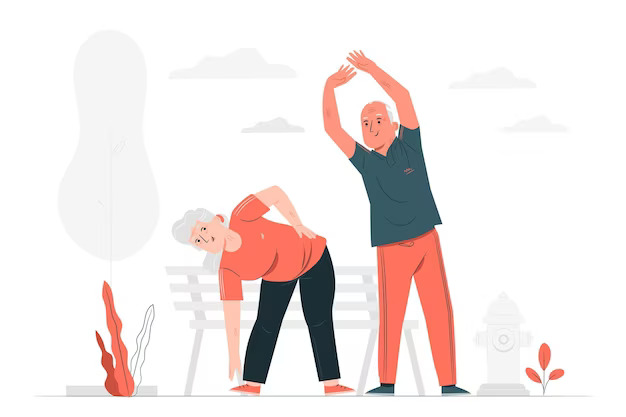Loneliness is a common problem among older adults, and it can have a significant impact on their physical and mental health. As people age, they may experience changes in their social networks, such as the loss of friends and family members, retirement, and decreased mobility. Feelings of loneliness and isolation may result from these changes.
alone has been linked to a range of negative health outcomes, including depression, anxiety, cognitive decline, and even an increased risk of mortality. Older adults who are lonely may also be more likely to engage in unhealthy behaviors, such as overeating, smoking, or drinking alcohol.
There are several factors that can contribute to loneliness in older adults, including:
- Loss of friends and family members: As people age, they may experience the loss of friends and family members, which can lead to feelings of loneliness and isolation.
- Retirement: Retirement can be a significant change in an older adult’s life, and it may result in a loss of social connections and a sense of purpose.
- Decreased mobility: As people age, they may experience decreased mobility, which can make it more difficult to stay connected with others and engage in social activities.
- Health problems: Health problems can limit an older adult’s ability to participate in social activities, which can lead to feelings of loneliness and isolation.
- The technology used: Older adults who are not familiar with technology or who do not have access to it may be at a disadvantage when it comes to staying connected with others.
Strategies to aid older persons who are lonely, including:
- Encouraging social connections: Encouraging older adults to stay connected with friends and family members, and to participate in social activities can help reduce feelings of loneliness.
- Providing support: Providing emotional and practical support, such as transportation or assistance with technology, can help older adults stay connected and engaged.
- Addressing health problems: Addressing health problems and providing appropriate care can help older adults maintain their mobility and independence.
- Promoting volunteering: Volunteering can provide “online counselling for ADHD” older adults with a sense of purpose and help them stay connected with their communities.
- Providing access to technology: Providing older adults with access to technology and teaching them how to use it can help them stay connected with friends and family members.
Overall, alone is a significant problem among older adults, and addressing it requires a multifaceted approach that involves social support, healthcare, and technology.
Effects of loneliness
lonesome can have a wide range of negative effects on a person’s mental, emotional, and physical health. Here are a few typical outcomes of lonesome
- Depression: Feeling lonely can lead to symptoms of depression, such as sadness, hopelessness, and loss of interest in activities.
- Anxiety: Loneliness can also increase anxiety and cause feelings of worry or unease.
- Cognitive decline: Loneliness has been linked to cognitive adult counseling decline and may increase the risk of developing conditions such as dementia and Alzheimer’s disease.
- Cardiovascular disease: unaccompanied has been associated with an increased risk of cardiovascular diseases, such as heart attacks and stroke.
- Weakened immune system: unaccompanied can weaken the immune system, making it more difficult for the body to fight off illness and disease.
- Sleep problems: Being alone can also cause sleep problems, such as insomnia or restless sleep.
- Substance abuse: companionless can increase the risk of substance abuse, such as alcohol or drug use.
- Increased mortality: Studies have shown that companionless is associated with an increased risk of mortality, particularly in older adults.
Overall, loneliness can have a significant impact on a person’s physical and mental health, and it is important to address it and seek support when experiencing these feelings.
conclusion
Loneliness is a common problem among older adults, and it can have a significant impact on their physical and mental health. It can lead to a range of negative outcomes, including depression, anxiety, cognitive decline, cardiovascular disease, weakened immune system, sleep problems, substance abuse, and even an increased risk of mortality. Addressing loneliness in older adults requires a multifaceted approach that involves social support, healthcare, and technology

